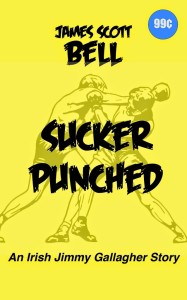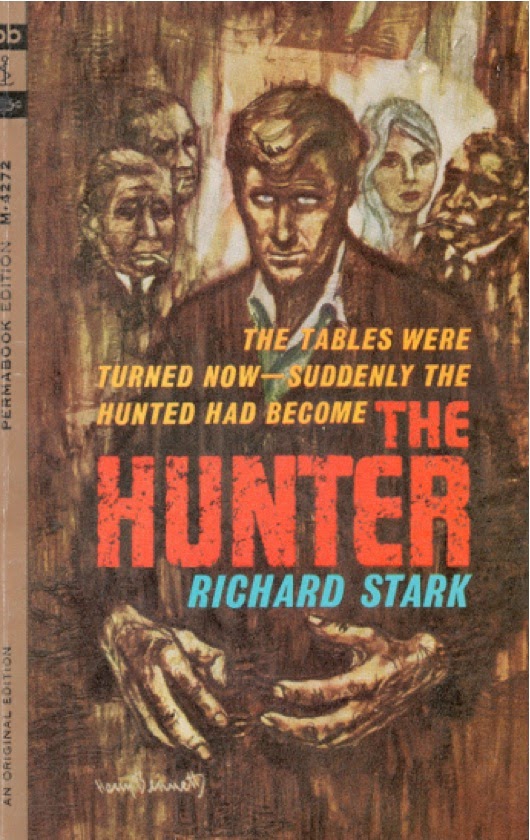Today’s post is brought to you by a new string in my writing bow: the latest story in the saga of 1950s Los Angeles boxer, Irish Jimmy Gallagher. And it is FREEtoday for Kindle.
So what’s the meaning of this bow business?
I’m a fan of the Parker novels by Donald Westlake (writing as Richard Stark). I’ve seen all the film versions, like Point Blank with Lee Marvin, The Outfit with Robert Duvall, and Paybackwith Mel Gibson.
Payback, a 1999 release, is particularly good. But I recently became aware that the director, Brian Helgeland, had the film taken away from him. His version did not test well, so a new third act was written under the eye of Gibson, who was one of the producers.
A few years ago, Helgeland was given permission to release his director’s cut. I recently watched it. It is darker and perhaps truer to the feel of the novels. I do think, however, Mel and Paramount were correct. The 1999 version is more satisfying.
But I digress. The director’s cut DVD has an interview with the late, great Westlake on the genesis of Richard Stark and the Parker novels.
Westlake was putting out one hardcover book a year under his own name. Wanting to make a living as a writer, he decided he needed “another string in his bow.” He decided to try the paperback original market, which was mostly for a male audience in those days.
He wanted the books to be lean and dark. “Without adverbs,” he said. “Stark.”
That’s how he came up with the last name for his pseudonym.
He chose Richard because he liked the iconic noir actor Richard Widmark.
That’s how Richard Stark was born.
Then he needed a name for his character. He chose Parker. With a wry smile he said he wished he’d chosen another name, because he spent so much time trying to come up with other ways to say, “Parker parked the car.”
In any event, his agent showed the first book, The Hunter, to Gold Medal, the leading PBO publisher of the day. Rejected. So they tried Pocket Books. An editor with the wonderful name of Bucklin Moonliked it.
The original manuscript ended with Parker in jail. He did not, in other words, get away with it (it being the killing of some bad guys in order to get money owed him from a heist). Moon asked Westlake if he would consider changing the ending and making it a series, and could he turn out three books a year?
Westlake jumped at the chance.
What happened over the next several years is that Richard Stark started selling better than Donald Westlake, which irked Westlake the author . . .but pleased Westlake the guy who wanted to make a living.
And so Parker became one of the great characters of hard noir.
When self-publishing took off in 2008, I said it felt like the mass market boom of the 50s, where many literary authors made extra money. Like Evan Hunter writing as Ed McBain. Or Gore Vidal writing as Edgar Box.
And that gives us a lesson: We can, like Westlake, have more strings in our bows. Self-publishing offers that opportunity. But unlike Westlake and writers of that era, we don’t need to use a pseudonym. Indie publishing distinguishes brands by way of cover design, book description and categorization. Writers can therefore gain fans for material unlike other things they’re doing. Some cross-pollination of fans is not only possible, but probable. Reader have found me by way of my vigilante nun series and gone on to sample my historicals. Imagine that.
[NOTE: When I did my zombie legal thrillers, I was a traditional-only author, so I chose a pseudonym, K. Bennett. I’ve grown to like the sullen, mysterious K. He may write some more.]
We can freely write in multiple forms and genres, short and long, and the tide will lift all the boats. Back when I started getting paid for writing, there was only one stream available for the professional scribe. Now there are three: traditional, indie and a river made up of both.
Which is good news for writers of every stripe, especially those who want to stretch and grow and make some actual money, too.
So how many strings are in your bow?



Great post.
I enjoyed SUCKER PUNCHED tremendously. I read it the first night I learned of it. The price was good, too. Thanks. I was pulled in from the first flurry of fists, and didn’t come up for air until the surprise and resonant ending. I hope there will be more.
I’m looking forward to seeing the comments today on your “string theory.” I’ve been exploring the use of short story as another string, particularly as a vehicle to bridge from one novel to the next – use of back story with a secondary character as the protagonist, publicity for the next novel, dual use of research, etc.
I hope some of your readers will comment on use of the short story from the perspective of the novelist.
Thanks for the kind words about the story, Steve. As for the use of short stories, you probably know that many “A List” authors are using short form digitals to fill in “gaps” or do backstory, etc. A good move UNLESS it appears to be nothing but a marketing ploy for an upcoming novel. Then readers will pummel the author. Every offering needs to stand on its own vie-a-vis quality.
So, yes, explore. That’s the nice thing about having digital. We can try things.
At the moment, none. I’m unpublished on all fronts.
But that’s about to change. This year I’m planning on self publishing a series of novellas. It’s going to be in episodic format, much like how TV is structured, with one long arc to be completed at the end of the season.
I am very excited this short form is now viable. I’ve always had ideas that fit into series, but I’ve often felt concerned that I would set it all up only to get the book rejected or the series cancelled.
Shorter forms are good for improving your craft, too. It’s not the same thing to write a novel, but it’s less time to write a novella, edit it profusely, sent it to an editor, and edit it some more. I think it has the possibility on boosting your writing skills exponentially.
I’ve been reading a ton of wonderful books on self publishing, and I’m very excited to be able to be in control of my writing career like this.
I plan to continue work on my novel length fiction and submit it to agents, but in the mean time I’ll have another string in my bow, already out there and building my audience.
Thanks for the wonderful post!
And thanks again for Self Publishing Attack! It’s been one of my go-to books on the subject.
Elizabeth, this serial idea is gaining popularity in digital. I do think the challenge will be the wrap up, just as it has been for TV shows whose last episodes have been less than satisfying.
Glad to hear you’re pursuing traditional full-length fiction but, at the same time, looking at self-publishing shorter work. So many possibilities for writers now.
Yes, I think wrapping everything up in a satisfying manner is one of the hardest parts. Also planning enough out that I have a clear direction, but not so much that I’m trapped in a storyline.
At the moment I’m using Write from the Middle, as well as the doorway method you talk about in Plot and Structure to give me some plot points to hit but keep things open in the middle.
I’ve always loved the idea of serial fiction, so I’m glad I can take advantage of it. 😀
Thank for “Sucker Punched” – looking forward to reading it soon.
I am indie releasing my debut medical thriller “Nerve Damage” within the month. It has been professionally edited (Jodie Renner) and is the product of years of writing and study (including more than 30 courses at the Loft Literary Center, your books and “Story Masters” conference held in Mpls).
I sent one query to an agent on an author’s recommendation but have otherwise planned on indie release from the start.
I’m unsure whether this is my first string or perhaps the launch of my first arrow? I hope it finds appreciative readers!
I’ve followed TKZ for several years. Thank you for providing guidance and writing wisdom. I much appreciate it!
Welcome to the stream, Tom. If a book has the goods it will find readers, and vice versa. It may be a trickle at first, but keep feeding it with new, quality material. That’s really the only “secret.”
Have a little fun, too. My Gallagher stories are fun for me to write, so I hope they’re fun for the readers as well.